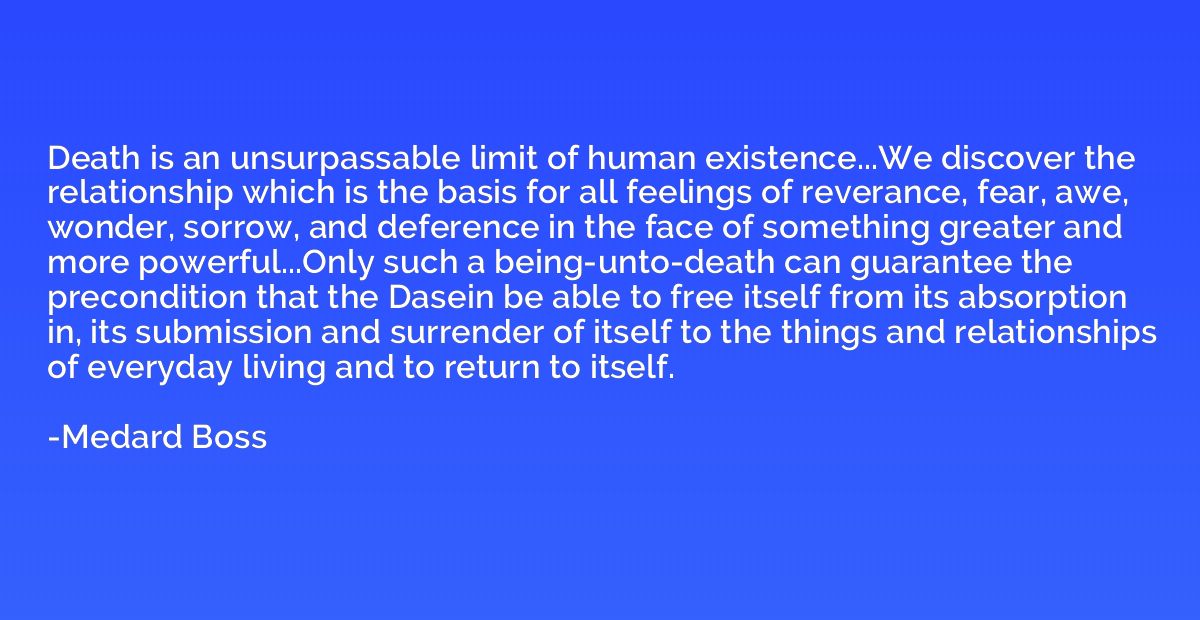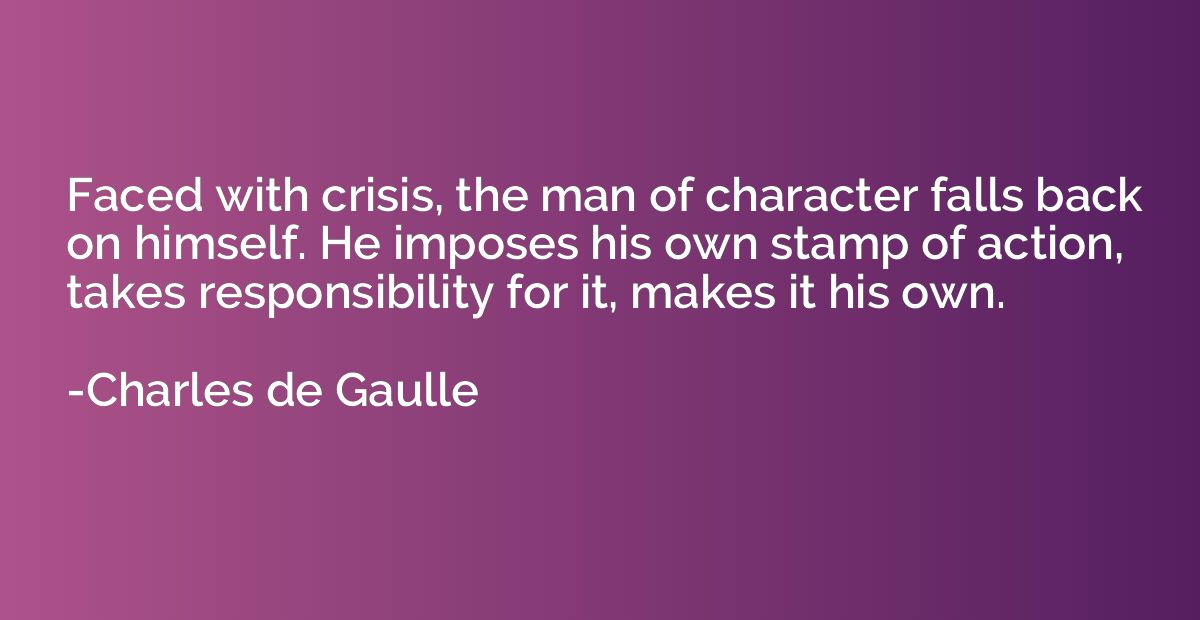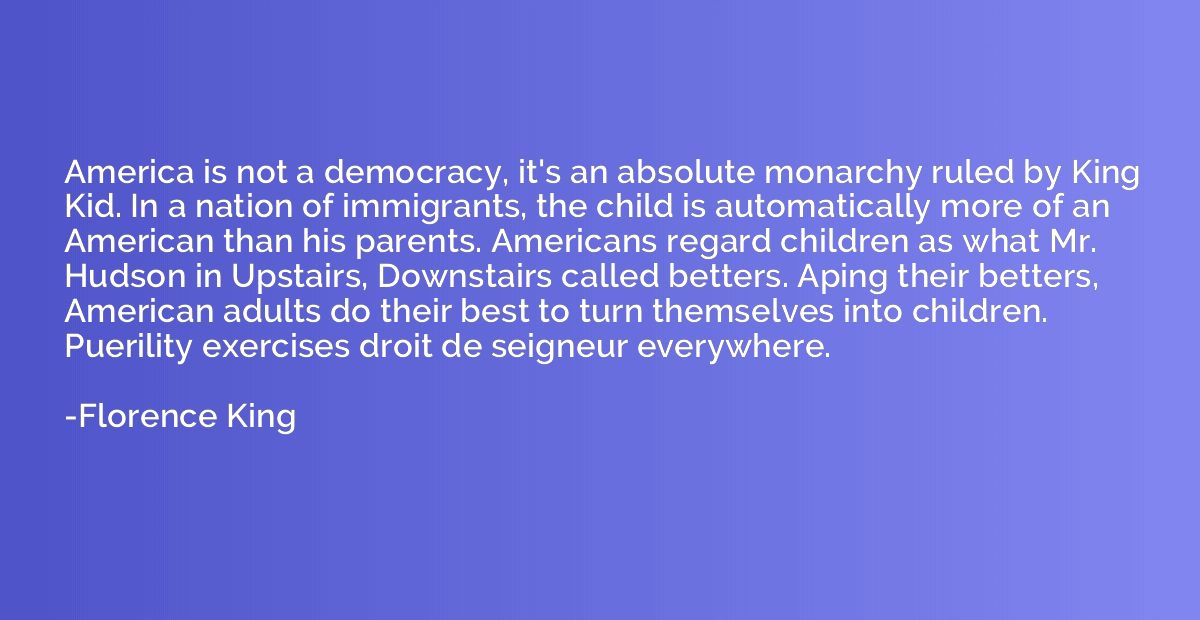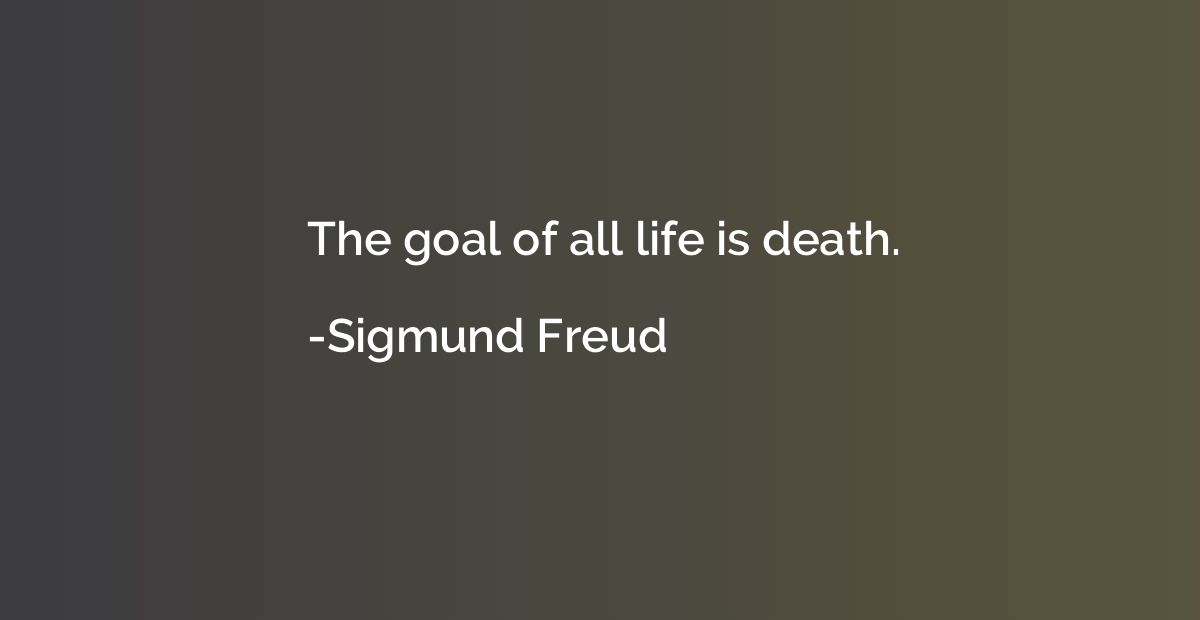Quote by William Shakespeare
And while thoulivest, dear Kate, take a fellow of plain anduncoined constancy; for he perforce must do theeright, because he hath not the gift to woo in otherplaces: for these fellows of infinite tongue, thatcan rhyme themselves into ladies' favours, they doalways reason themselves out again. What! aspeaker is but a prater; a rhyme is but a ballad. Agood leg will fall; a straight back will stoop; ablack beard will turn white; a curled pate will growbald; a fair face will wither; a full eye will waxhollow: but a good heart, Kate, is the sun and themoon; or, rather, the sun, and not the moon; for itshines bright and never changes, but keeps hiscourse truly. If thou would have such a one, takeme; and take me, take a soldier; take a soldier,take a king. And what sayest thou then to my love?speak, my fair, and fairly, I pray thee
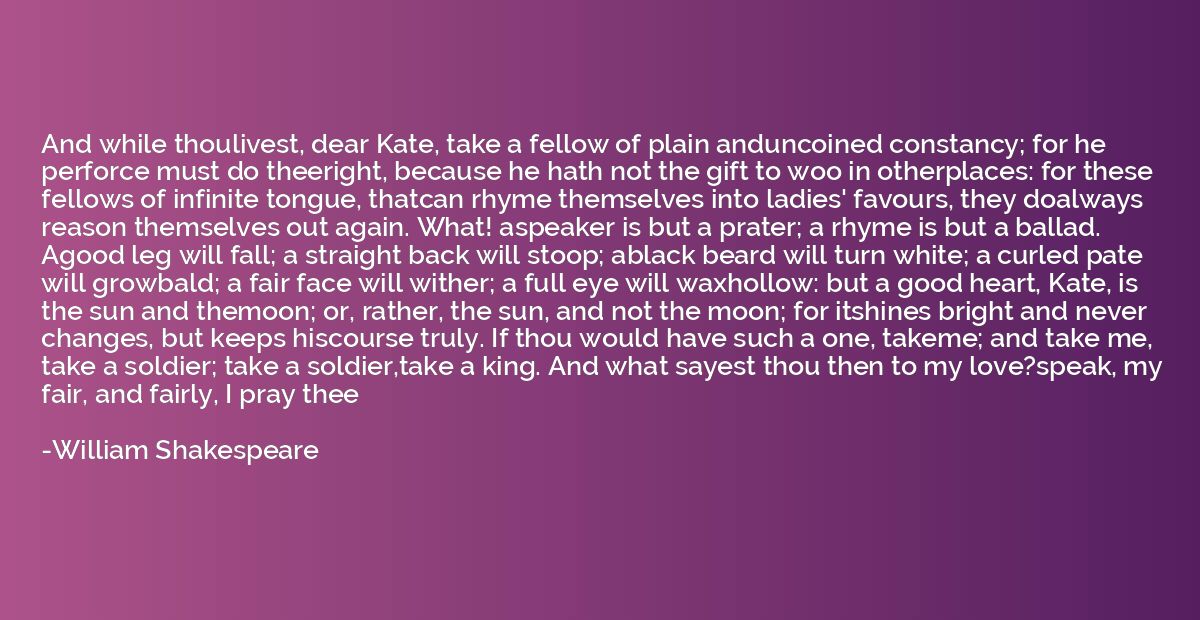
Summary
This quote is spoken by the character Dumain in Shakespeare's play "Love's Labour's Lost." In this passage, Dumain is expressing his affection to a woman named Kate and urging her to choose a man of genuine and unwavering loyalty rather than someone who only knows how to charm and woo. He argues that physical attributes like appearance and hair will fade over time, but a good heart is a constant source of light and steadfastness. Dumain metaphorically compares himself to the sun, emphasizing his unwavering commitment, and suggests that if Kate desires such constancy, she should choose him, a soldier, or even a king. The quote conveys the importance of inner qualities and fidelity in relationships.







